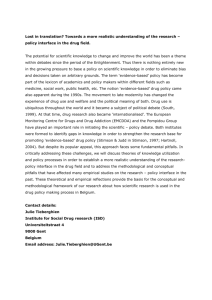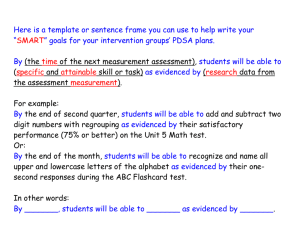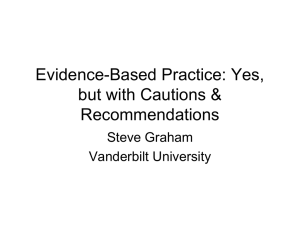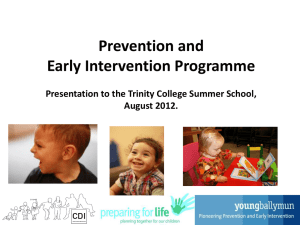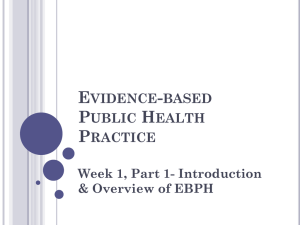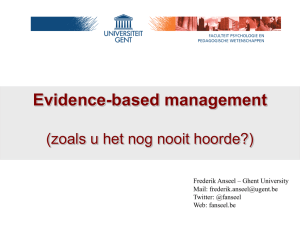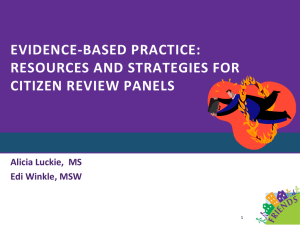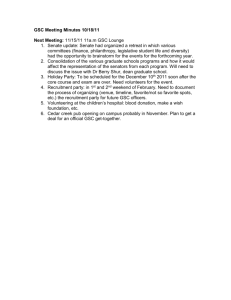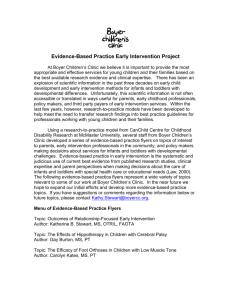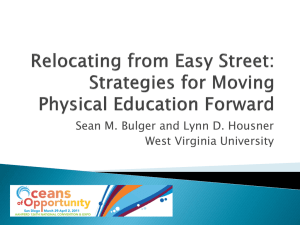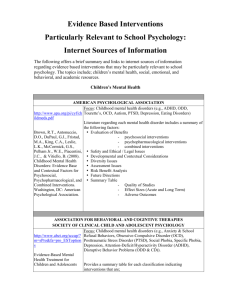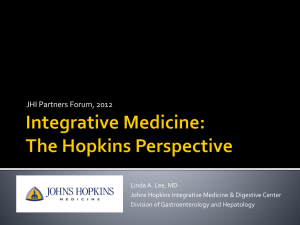Guide for Evidence Based Practice
advertisement
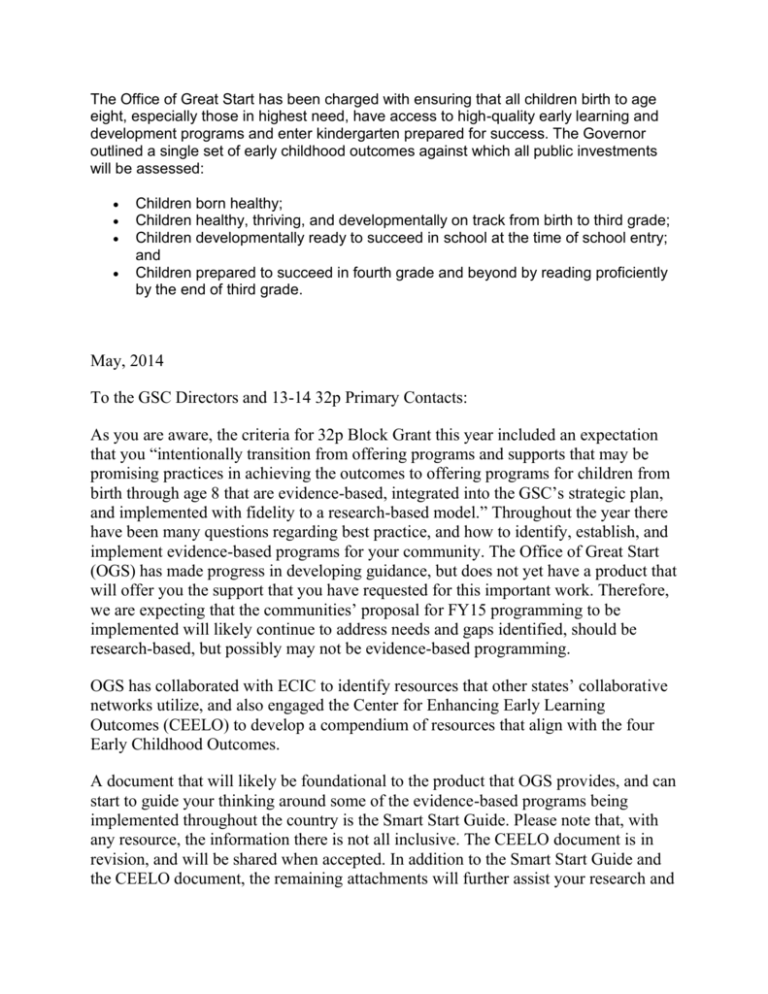
The Office of Great Start has been charged with ensuring that all children birth to age eight, especially those in highest need, have access to high-quality early learning and development programs and enter kindergarten prepared for success. The Governor outlined a single set of early childhood outcomes against which all public investments will be assessed: Children born healthy; Children healthy, thriving, and developmentally on track from birth to third grade; Children developmentally ready to succeed in school at the time of school entry; and Children prepared to succeed in fourth grade and beyond by reading proficiently by the end of third grade. May, 2014 To the GSC Directors and 13-14 32p Primary Contacts: As you are aware, the criteria for 32p Block Grant this year included an expectation that you “intentionally transition from offering programs and supports that may be promising practices in achieving the outcomes to offering programs for children from birth through age 8 that are evidence-based, integrated into the GSC’s strategic plan, and implemented with fidelity to a research-based model.” Throughout the year there have been many questions regarding best practice, and how to identify, establish, and implement evidence-based programs for your community. The Office of Great Start (OGS) has made progress in developing guidance, but does not yet have a product that will offer you the support that you have requested for this important work. Therefore, we are expecting that the communities’ proposal for FY15 programming to be implemented will likely continue to address needs and gaps identified, should be research-based, but possibly may not be evidence-based programming. OGS has collaborated with ECIC to identify resources that other states’ collaborative networks utilize, and also engaged the Center for Enhancing Early Learning Outcomes (CEELO) to develop a compendium of resources that align with the four Early Childhood Outcomes. A document that will likely be foundational to the product that OGS provides, and can start to guide your thinking around some of the evidence-based programs being implemented throughout the country is the Smart Start Guide. Please note that, with any resource, the information there is not all inclusive. The CEELO document is in revision, and will be shared when accepted. In addition to the Smart Start Guide and the CEELO document, the remaining attachments will further assist your research and discussions with your GSC to determine the program(s) to implement in your community. In addition, it is hoped that we will be able to provide some guiding questions about selection of the programming investments, such as: * To what extent does the programming meet the guiding principles that stakeholders indicated were important, as reported in Great Start, Great Investment, Great Future (i.e., focus on children with greatest need first, invest early, quality matters)? * To what extent does the evidence on the implementation of the program show that it achieves results for the children that align with one or more of the Early Childhood Outcomes? * Can we collaboratively make the investment needed to provide sufficient intensity and duration to reach the anticipated outcomes for the children either enrolled directly or impacted by their parent’s involvement? In each of the provided resources below you will see programs that may appear several times but have different ratings. This is because each has their own set of criteria to measure the success and outcomes of each program. Keep in mind as you read through these documents that you may need to do further research and/or collect further data to best inform your Collaborative and other local partners as you work towards selection and implementation. Other Resources on Evidence Based Programs: ZERO TO THREE ZERO TO THREE Evidenced Based Programs: National Registry of Evidenced Based Programs through SAMHSA Coalition for Evidence-Based Policy RAND’s Promising Practices Network What Works Clearinghouse Home Visiting Evidence of Effectiveness Other Resources on Evidence Based Programs: ZERO TO THREE ZERO TO THREE Evidenced Based Programs: National Registry of Evidenced Based Programs through SAMHSA Coalition for Evidence-Based Policy RAND’s Promising Practices Network What Works Clearinghouse Home Visiting Evidence of Effectiveness
